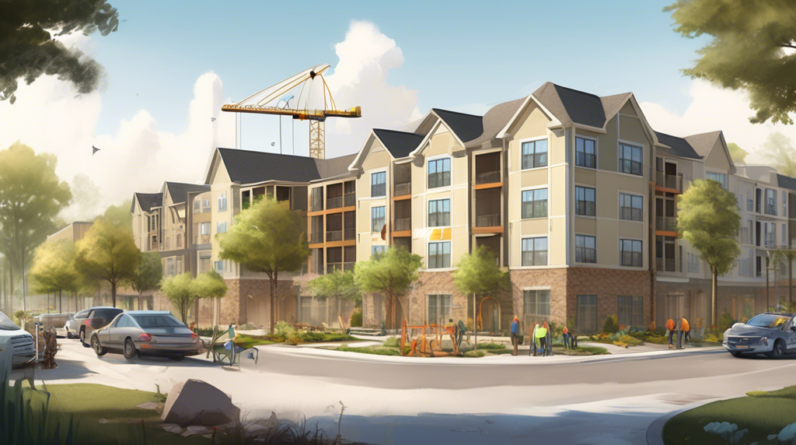Can Florida’s Property Insurance Handle a ‘Hyperactive’ Hurricane Season?
As Floridians brace for yet another hurricane season, a palpable sense of unease hangs in the air. It’s not just the looming threat of powerful storms; it’s the gnawing uncertainty about the state of Florida’s property insurance market. After years of escalating premiums, shrinking coverage, and insurer insolvencies, the question on everyone’s mind is: Can Florida’s property insurance withstand the onslaught of a ‘hyperactive’ hurricane season?
A Perfect Storm: Factors Battering Florida’s Insurance Market
To understand the precarious position of Florida’s property insurance market, one must first delve into the confluence of factors that have created a perfect storm:
1. Increasing Hurricane Frequency and Intensity
Climate change is no longer a distant threat; it’s our present reality. Florida, situated in a hurricane-prone region, is experiencing this firsthand. Warmer ocean temperatures fuel more frequent and more intense hurricanes, leading to catastrophic damage and skyrocketing insurance claims. The past few years alone have witnessed storms like Irma, Michael, and Ian, leaving behind billions of dollars in destruction.
2. Rising Reinsurance Costs
Reinsurance, essentially insurance for insurance companies, plays a critical role in helping insurers manage risk. However, global reinsurance rates have been climbing steadily due to factors like climate change, inflation, and geopolitical instability. This has put immense pressure on Florida’s insurers, who rely heavily on reinsurance to cover their potential losses. The increased cost of reinsurance is passed down to homeowners in the form of higher premiums.
3. Rampant Insurance Litigation and Fraud
Florida has become notorious for its high rate of insurance litigation, particularly related to property insurance claims. Some unscrupulous contractors and attorneys have exploited legal loopholes, leading to an explosion of frivolous lawsuits. This rampant litigation has added billions of dollars in unnecessary costs to the insurance system, further straining insurers and driving up premiums for everyone.
4. A Surge in Roof Replacements and Costly Claims
Florida’s aging housing stock, combined with the increasing frequency of severe weather events, has led to a surge in roof replacements. While legitimate claims are a concern, there are also instances of fraudulent or inflated claims related to roof damage. This, coupled with rising construction costs and supply chain disruptions, has significantly increased the cost of claims for insurers.
5. Insurer Insolvencies and a Shrinking Market
The cumulative effect of these factors has taken a heavy toll on Florida’s property insurance market. Over the past few years, several insurers have become insolvent, leaving homeowners scrambling for coverage. Other insurers have pulled back from the Florida market, reducing competition and limiting choices for consumers. The remaining insurers have been forced to raise premiums dramatically and reduce coverage options to mitigate their own risk.
The Impact on Homeowners: A Looming Crisis
For Florida homeowners, the consequences of this insurance crisis are becoming increasingly dire. Many are grappling with exorbitant premium increases, some seeing their rates double or even triple in recent years. Others are facing non-renewals or finding it increasingly difficult to obtain adequate coverage, particularly for windstorm damage. This situation has left many homeowners feeling vulnerable and financially strained, with some even questioning their ability to afford to stay in their homes.
Navigating the Storm: Potential Solutions and Uncertain Future
The Florida Legislature has recognized the gravity of the situation and has convened multiple special sessions in recent years to address the property insurance crisis. These legislative efforts have focused on several key areas:
- Reducing litigation costs by enacting reforms aimed at curbing frivolous lawsuits and limiting attorney fees.
- Creating a more stable reinsurance market through state-backed reinsurance programs and other mechanisms.
- Improving the financial stability of insurers by requiring higher capital reserves and stricter financial oversight.
- Cracking down on insurance fraud and abuse through stricter penalties and increased enforcement.
While these legislative actions are steps in the right direction, it remains to be seen whether they will be sufficient to stabilize the market and provide long-term relief to homeowners. Some experts argue that more drastic measures are needed, such as addressing the underlying issue of climate change and investing in mitigation efforts to reduce the impact of future storms.
Preparing for the Unknown: What Homeowners Can Do
In the face of this uncertain future, Florida homeowners must take proactive steps to protect themselves:
- Review Your Policy: Carefully examine your insurance policy to understand your coverage limits, deductibles, and exclusions. Contact your insurance agent to discuss any questions or concerns.
- Shop Around for Coverage: Compare quotes from multiple insurers to ensure you are getting the best possible rates and coverage for your needs.
- Strengthen Your Home: Invest in hurricane-resistant features such as impact windows, reinforced doors, and a properly secured roof. This can not only reduce your risk of damage but may also qualify you for discounts on your insurance premiums.
- Create a Home Inventory: Document your belongings with photos or videos to expedite the claims process in the event of damage.
- Stay Informed: Monitor weather forecasts closely during hurricane season and have a plan in place for evacuation and securing your property.
The future of Florida’s property insurance market hangs in the balance. While legislative efforts provide a glimmer of hope, the true test will come with the next major hurricane. Until then, homeowners must remain vigilant, informed, and prepared to weather the storm, both literally and figuratively.







